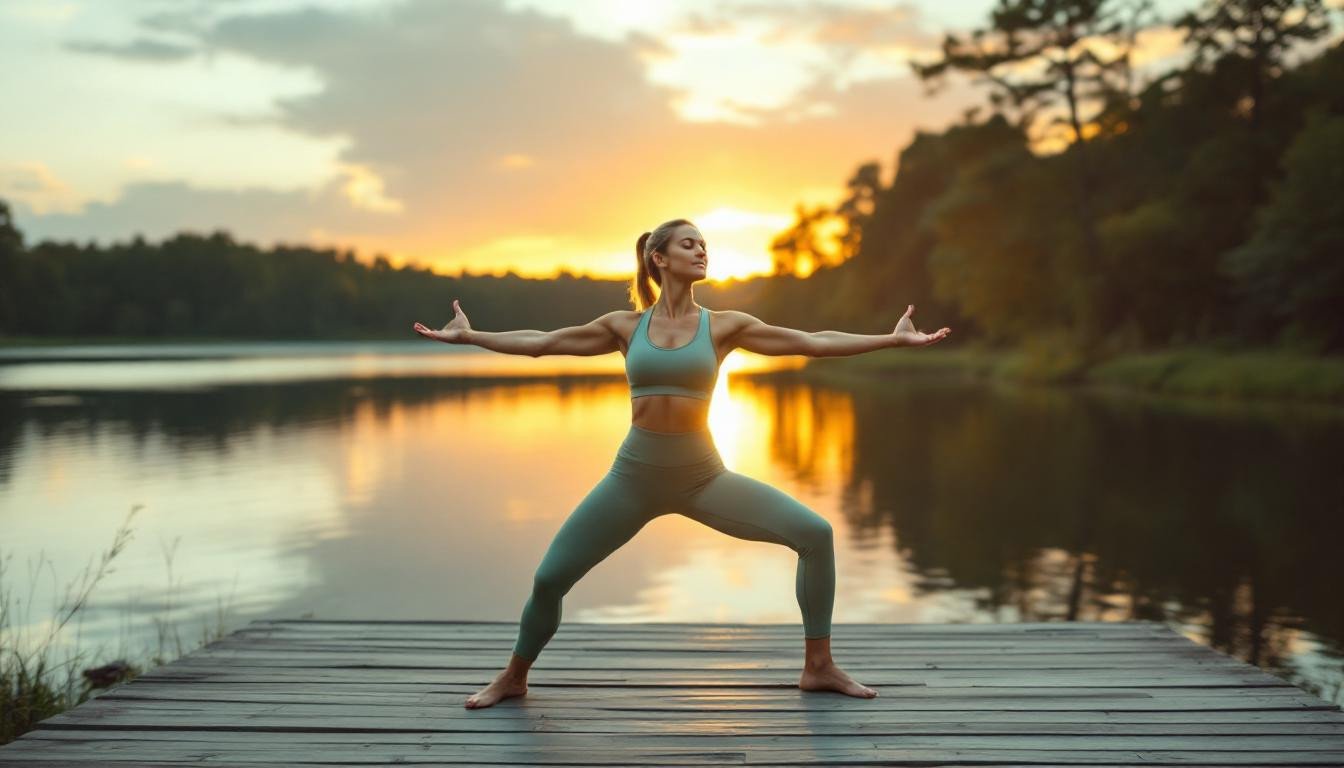At 55, I sought ways to manage my anxiety and tested three specific stress-management techniques. Remarkably, my anxiety levels dropped by 40% in just three weeks.
**Understanding Stress Management After 50** Life changes after 50 can increase anxiety, yet this period also brings valuable experience to help tackle these challenges. As we age, our bodies respond differently to stress, necessitating tailored fitness and lifestyle strategies for maintaining mental stability.
**Exercise as a Natural Anxiety Reducer** Regular physical activity serves as a powerful natural remedy for anxiety. Dr. Rebecca Chen, a geriatric psychiatrist, reports, “When patients engage in 30 minutes of moderate exercise daily, anxiety symptoms often decrease by up to 40% within three weeks.” Exercise boosts endorphin production, which can elevate mood. Recommended activities for those over 50 include brisk walking, swimming, and yoga, which provide physical benefits without overstraining joints.
**Nutrition’s Role in Anxiety Management** The food we consume significantly influences brain health and stress responses. Nutritionist Maria Hernandez emphasizes the importance of incorporating omega-3 rich foods, such as fatty fish and walnuts, to reduce brain inflammation linked to stress. Eliminating processed foods and focusing on whole foods can lead to notable improvements in anxiety levels. Key nutrients to consider include: – **Magnesium**: Found in dark leafy greens and nuts – **B Vitamins**: Present in whole grains and legumes – **Antioxidants**: Abundant in colorful fruits and vegetables
**Breaking the Sleep-Anxiety Cycle** Sleep quality and anxiety are interconnected; poor sleep can worsen anxiety and vice versa. This is particularly true for women experiencing hormonal changes during menopause. Margaret, 64, explains, “My anxiety peaked at night, making sleep nearly impossible. After adopting hormone-balancing practices, I now sleep through the night for the first time in years.”
**Mindfulness Practices for Mental Resilience** Mindfulness acts as mental training that builds resilience against stress. Just 10 minutes of focused breathing or meditation each day can significantly alter your brain’s stress response. Effective mindfulness techniques for beginners include: – Body scan meditation – Five-minute focused breathing – Walking meditation outdoors – Guided visualization
**Finding Joy in Movement** Exercise can also enhance overall happiness, particularly after 50. Engaging in activities that feel more like play—such as dance classes, pickleball, or water aerobics—provides both physical health benefits and social connection.
**Posture’s Impact on Mental State** Your posture can influence your anxiety levels. Poor posture may create tension in the nervous system, which can exacerbate anxious feelings. Simple posture corrections can alleviate physical discomfort and reduce mental strain. Standing tall signals confidence to the brain, promoting calmness.
**Rewiring the Stress Response After 50** It is indeed possible to reshape your stress response as you age. The brain retains neuroplasticity throughout life, allowing for adaptation to new strategies. By combining regular exercise, mindfulness, balanced nutrition, and quality sleep, you can significantly improve your relationship with stress and anxiety. The years ahead can be filled with peace and stability, starting with mindful choices made today.



